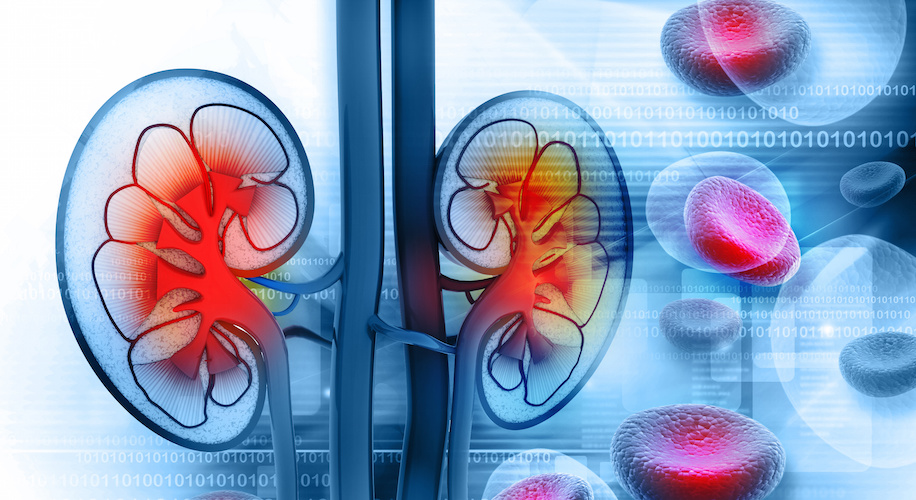
Novel coronavirus disease (COVID-19) is a newly discovered contagious disease caused by severe acute respiratory syndrome (SARS)–coronavirus (CoV)-2 virus, primarily manifesting as an acute respiratory illness with interstitial and alveolar pneumonia, but it can affect multiple organs such as the kidney, heart, digestive tract, blood, and nervous system.
The kidney appears to be a common target of the virus. Blood urea nitrogen was elevated in 27% overall and in two-thirds of patients who died. Computed tomography scan of the kidneys showed reduced density, suggestive of inflammation and edema. Cheng et al. recently reported that amongst 710 consecutive hospitalized patients with COVID-19, 44% had proteinuria and hematuria and 26.7% had hematuria on admission. One case of FSGS allegedly caused by coronavirus has been reported in the literature. The prevalence of elevated serum creatinine and blood urea nitrogen was 15.5% and 14.1%, respectively. Acute kidney injury was an independent risk factor for patients’ in-hospital mortality.
Continuous renal replacement therapy (CRRT) has been used as treatment of choice in these patients with the scope of improving uremic symptoms, removing fluids and, more importantly, removing cytokines. In one study, high-volume hemofiltration in a dose of 6 l/h removed inflammatory cytokines (IL-6) and improved the Sequential Organ Failure Assessment scores at day 7 in patients with sepsis.
